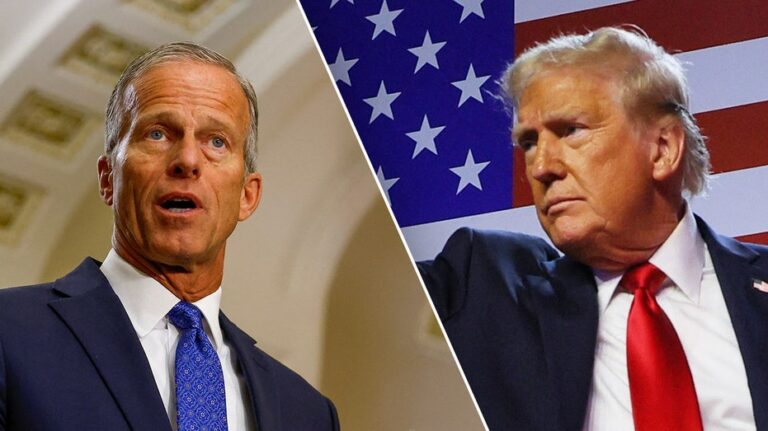
President Trump’s second term offers Americans another chance to fix our broken Department of Education. We spend over $15,000 a year on K-12 students, more than all but one nation.
Now that the American people have spoken and decided that Donald J. Trump will be both the 45th and 47th president of the United States, it is time for elected officials to set priorities. For parents and children across the country, some of the most important and impactful decisions the new administration will make will deal with education policy, and there is certainly a lot of work to be done in that realm.
We as a country need to wake up and realize that our current education approach is not working. High school math scores have plummeted and are lagging behind numerous other developed countries. We don’t fare much better on a global scale in science or reading either. Civics scores for middle schoolers are alarmingly low, and many students are showing up to college without knowing basic facts about American civics. Meanwhile, America is spending over $15,000 per pupil on average on public K-12 education, more than every other country but Luxembourg.
Given that Trump, along with Robert F. Kennedy Jr. and Elon Musk, has expressed his intention to take on the federal bureaucracy of Washington, D.C., he should train his crosshairs on the Department of Education, for starters, and has indicated he will do so.
TRUMP PLANS TO SHIFT SCHOOL FUNDING CONTROL TO LOCAL COMMUNITIES, HAS YET TO PICK DOE SECRETARY
As it stands, the Department of Education now acts primarily as a clearing house for the federal dollars that pass through the administration to state and local education systems. On paper, this doesn’t seem that objectionable to most people, and it may even appear necessary. After all, somebody in the federal government needs to carry out education policies passed by Congress.
However, he who pays the piper picks the tune. In the case of the federal government, the power to write checks gives bureaucrats and politicians in Washington the power to dictate policies that run roughshod over state governments, local school boards and parents. Probably the most egregious examples of this power were the Obama Education Department’s transgender bathroom edict and the Biden administration’s efforts to use Title IX to redefine the word “woman” to include biological men.
But while examples like these garner the most media attention and political pushback, they are just the visible tip of the iceberg. When a department has hundreds of billions of dollars at its disposal going across 50 states, the federal territories and the District of Columbia, there are thousands of decisions made by unelected bureaucrats every day that impact our country’s various education systems. These decisions will reverberate thousands of miles away in communities they will never visit, in classrooms they will never see and upon students they will never meet.
CLICK HERE FOR MORE FOX NEWS OPINION
No matter how many degrees and certifications a teacher or administrator can accumulate, there is no amount of technical knowledge that can replace the direct knowledge that parents have about their kids. There is no qualification that can supersede the natural rights that parents have when it comes to educating their own children.
For those who wonder how school systems would navigate such a potential chaotic change as eliminating a federal department, I counter that there are indeed ways to do this such as block granting funds out to the states for a set amount of time until legislatures can convene and work out their own approaches.
However, we must keep in mind that eliminating a federal department would require some congressional action, and without 60 seats in the Senate, this plan could hit a wall. In such a case, the next best way to get around the bureaucracy would be for Trump to deliver on universal school choice at the federal level by allowing federal education dollars to follow individual students.
This — combined with his promise to provide funds to students who opt out of the government education system — would be the most monumental federal shift for parental rights in education in a decade — or even decades?
This approach would allow parents to escape the grip of the education cartel (composed of bureaucrats, politicians and union bosses) by freeing up the main point of leverage that it uses to keep students trapped in the system: money. This would open up new frontiers of innovative education models, safeguard parental rights and allow educators to refocus their energies on giving kids the kinds of education they need for the demands of the job market and the responsibilities of American citizenship.
There is nothing progressive or innovative about moving in the wrong direction, regardless of the initial intentions behind the endeavor. We as a nation have a tremendous opportunity here to make positive change for parents, students and taxpayers by getting rid of a system – something that has failed us for decades – and returning to what works.






